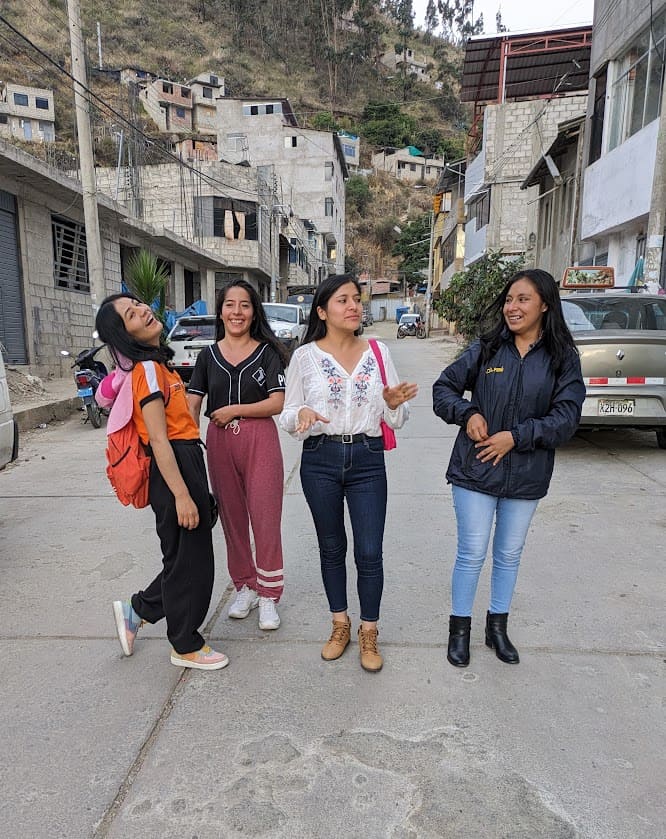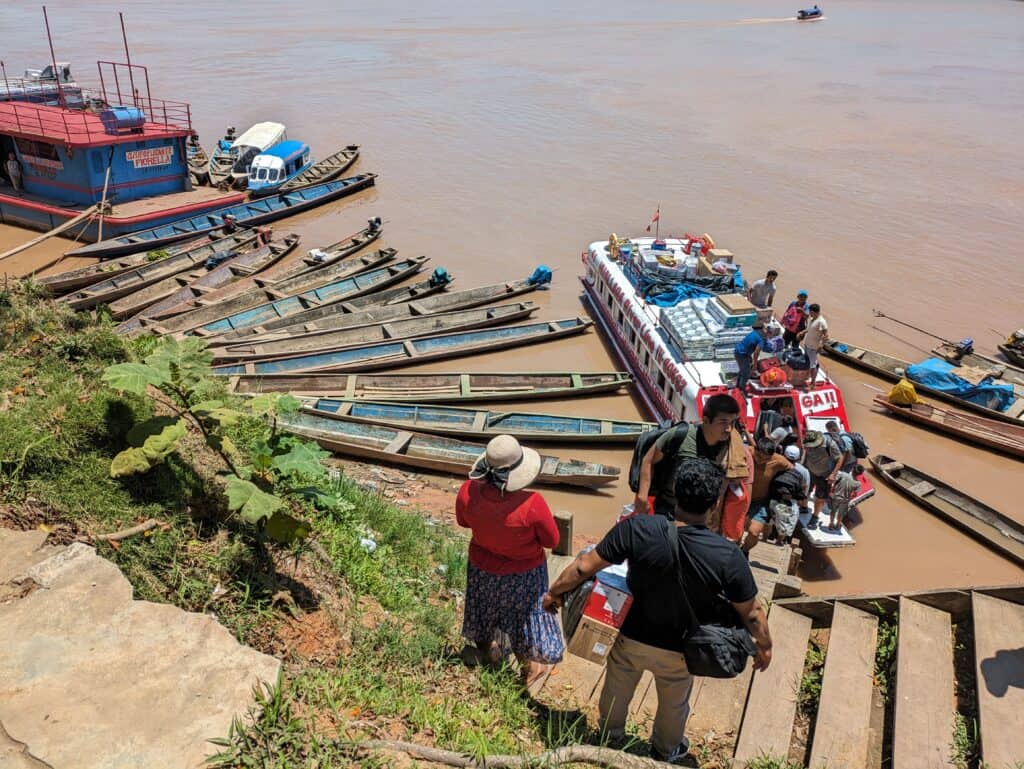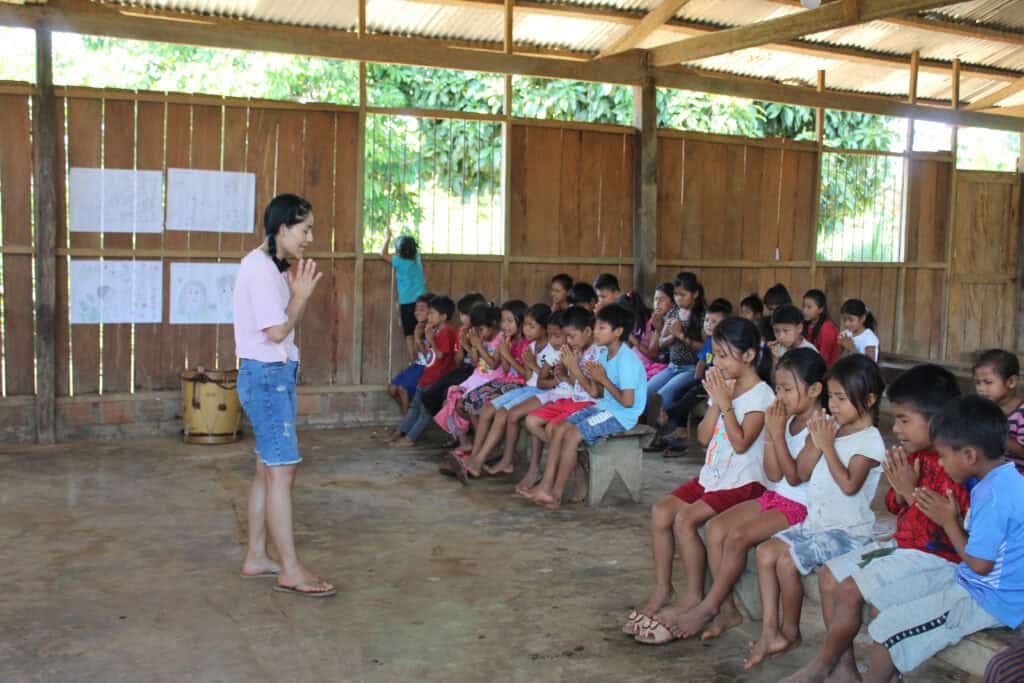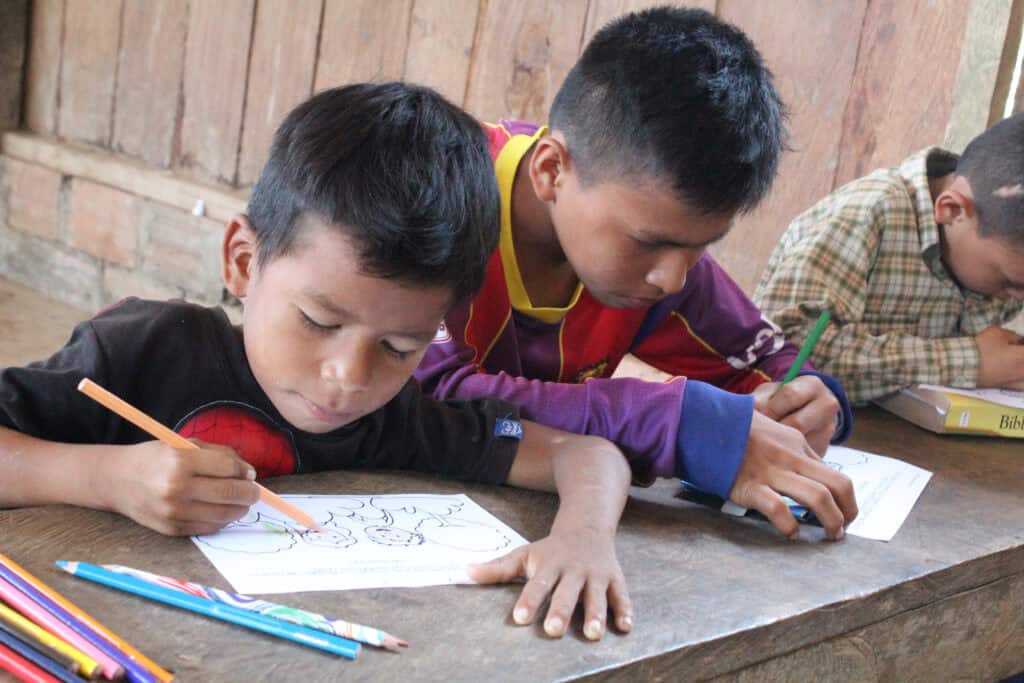Four young AIDIA staff members travel deep into the jungles of Peru to train Sunday school teachers and their students
“We think of missions as being emotional and adventurous, but I actually realized just how sacrificial it is. And you know, how hard it is.”

Betsabé Villegas and three of her coworkers are gathered around a table in the AIDIA offices in Abancay, Peru on a sleepy Saturday afternoon. They’re describing their recent trip to the remote Pastaza communities in the Amazon Basin to train Sunday school teachers and children. It’s a journey that affected each of them deeply. Later, as the sun begins to set, the four young women will laugh and joke as they gamely pose for photos on the street outside the compound. But for now, the mood is somber, and more than one face is streaked with tears.
Beyond both the sacrifice and the adventure, missions is about God touching hearts.
AIDIA’s Vision
Betsabé, her sister Ana María Villegas, Judy Vedia and Shendy Quispe all have different roles at AIDIA—from teaching to accounting—but like all staff at AIDIA, part of their job includes visiting the field. “The vision of AIDIA is always to get out to the communities and to get to know everybody,” says Ana María. Field visits are essential for training and supporting community members, but they come with hardship and sometimes risk, particularly for young women. “We knew about the risk, but we know that God is always with us. He’s always there to protect us,” says Ana María. Their trip to the Pastaza region was a potent reminder of how much they need that protection.
The Northern and Southern Pastaza communities are scattered along the Pastaza river in the Amazon basin of northern Peru. The villages are desperately poor and isolated, with little internet access or cell reception, and limited electricity. There are no roads in the area, so all travel must happen by boat or plane. Translators from both language groups have moved to the larger town of San Lorenzo to work on Bible translation projects. But the communities they left behind are still desperate for support and encouragement as they wait for the translated Scripture.
The journey to Southern Pastaza

Betsabé and Judy went to the Southern Pastaza community of Alianza Cristiana. After taking several flights, they arrived in a regional centre where they were forced to hire a peque-peque—a dugout canoe with an outboard motor—because the speedboat was not in service. During the 26-hour journey, it became clear that the boat had a slow leak, so the women took turns bailing it out, neither of them sleeping for longer than 15 minutes at a stretch. When they pulled into shore for the occasional bathroom break, they were immediately swarmed by thousands of mosquitoes in an area known for malaria and dengue. “We kept reminding ourselves that we wanted to see the children and teachers. It motivated us,” says Betsabé.
Traveling to Northern Pastaza
While their friends were traveling on the river, Shendy and Ana María made their way to the Northern Pastaza community of Andoas Viejo. While their journey was perhaps less physically grueling, they experienced intense frustration and anxiety as they spent several uncertain days waiting for the arrival of the small military plane that would fly them to their destination. At one point, they had no other option but to accept a ride back to town with an oil patch worker, a situation they knew had ended in assault for other women. But “there was no other way to get out of the airport,” says Shendy. “So we accepted the ride and prayed to the Lord.” They were comforted knowing that many people in Abancay were also praying for them.
Challenges in both communities
When the two pairs finally arrived in their respective destinations, they were distressed by what they found. Many people lacked enough food to eat, and their pets were starving. Clean water was in short supply, and disease was rampant. Many children showed signs of stomach worms and other health issues, and the surroundings were very dirty. Alcohol abuse was widespread, and people seemed to lack the energy to try to improve their own lives.
Emotional and spiritual health were also in upheaval. Even though the community of Andoas Viejo has a strong Catholic presence, Ana María and Shendy found that the residents were often confused about how they should live and even what was true, because they didn’t have the Bible in their own language. “They don’t understand the doctrines and so they’re really open to whatever anybody tells them because they don’t have any way to sort it out for themselves,” says Ana María. The women were asked to preach in the local churches—a surprising request in these patriarchal societies, and one that speaks to a desperation for spiritual food.

Joy and hunger for God’s Word
But despite all the sadness and challenges, it was thrilling for the women to see how excited the children in both communities were to learn about Jesus. Shendy and Ana María were nervous at first when they counted 97 children at one session. “However, the children’s behaviour was exemplary,” says Shendy. “What struck us the most was that they did not make a fuss, but attended all lessons with great expectations.” The Sunday school teachers were also greatly encouraged by the training, and begged them to return.
When it came time for the women to leave the communities of Alianza Cristiana and Andoas Viejo, everyone shed tears. “We loved each other so much that we cried like babies when we told them goodbye,” says Betsabé. “We said, we’ll either see you in heaven or we’ll be back soon.”
We all want the same thing
As they reflect on the trip, each of the women acknowledges that the time they spent in the communities was difficult. They remember never visiting the bathroom without their partner for protection, not having enough water to drink, and the feeling of being overwhelmed by sadness. But all four believe it is profoundly important to visit the Pastaza communities again. Betsabé and Ana María would prefer to travel with their soon-to-be husbands for safety, while Judy and Shendy are willing to visit again even as singles. They know how great the need is and the difference that God’s love and God’s Word can make in these communities.

“The most important thing we learned is that even though the place was so different, we’re all really the same, and we want the same thing: to know God better and to grow,” says Betsabé. “That’s the beautiful part.” ∎
AIDIA (pronounced idea) is a Bible translation and development organization based in Abancay, Peru. Originally established to translate the Bible into Eastern Apurímac Quechua and to minister to Apurímac mountain communities, AIDIA is now working in multiple languages across Peru. Wycliffe Canada supports several of these projects, including the Northern and Southern Pastaza translations.

